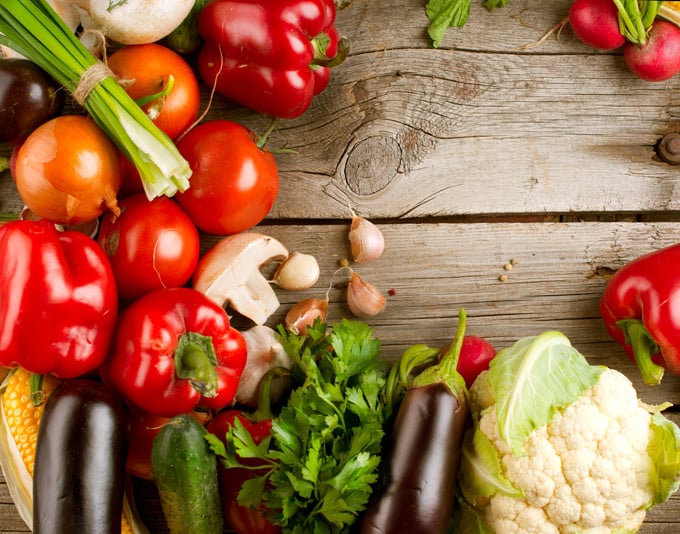
The Most Effective Food For Reducing Anxiety
Do feelings of anxiety interfere with your productivity, relationships and quality of life?
If you said yes, please understand that you are in good company. In fact, according to the Anxiety Disorders Association of American (2010), anxiety disorders are the most prevalent mental illness in the US affecting 40 million adults (18% of the population). Author Trudy Scott also reports in her book, the Anti Anxiety Food Solution, that the rates of anxiety disorders have tripled since the early 1990’s. That’s pretty scary. Even if you don’t suffer from a diagnosed anxiety disorder, the following information may still help you reduce nervousness, tension or occasional bouts of anxiety.
Anxiety can be the result of many different factors. These include unresolved emotional issues, nutrient deficiencies, hormonal imbalance, asthma, diabetes and certain medications. Despite the variable causes of anxiety, most anxiety today is treated with pharmaceuticals. Unfortunately, these drugs do not address the underlying cause of anxiety and they often come with a host of unpleasant side effects including addiction. The fact that prescriptions for anti-anxiety meds AND anxiety rates cintinue to rise simultaneously, also make it very clear that this approach is simply not effective.
The good news is, recent research has demonstrated that medications may not be our best solution. In fact, certain foods and nutrients have been found to effectively reduce anxiety by correcting the underlying nutrient imbalances and deficiencies. Many commonly consumed foods such as caffeine, sugar, gluten, and alcohol have also been found to cause or exacerbate anxiety. This research has shown that for certain anxiety sufferers, dietary changes are more than enough.
An anti-anxiety diet would begin with the following 10 guidelines:
- A focus on whole, organic fruits (up to 2 servings per day) and vegetables (5-9 servings daily)
- Moderate amounts of high quality organic, grass-fed, pasture raised and wild animal protein
- Moderate amounts of high quality fat
- Elimination of gluten
- Elimination of dairy
- Elimination of caffeine
- Elimination of refined sugar
- Elimination of alcohol
- Plentiful filtered water (64 ounces)
- Five calm, deep breaths before each meal (sounds silly, but it is truly makes all the difference 😊
As you can see, these anti-anxiety dietary guidelines are bascially the paleo diet. Hopefully this puts you ahead of the curve. Recent research conducted by Dr. Felice Jacka, a psychiatrist and researcher on the influence of food on mood, has also noted that high quality animal protein is especially beneficial for those who suffer from anxiety.
This is due to the fact that animal protein provides all essential amino acids in a very bioavailable form. These amino acids then serve as the building blocks for neurotransmitters in your brain that positively affect mood. When neurotransmitter levels are depressed, it can cause depression, anxiety and other mood disturbances. Therefore, consuming high quality animal protein will provide the amino acids to keep you calm, cool and collected all day long.
Although any source of high quality animal protein can provide these valuable amino acids, experts have noted that the most beneficial form of protein for mental health is organic, grass-fed red meat. Trudy Scott (author of the Anti Anxiety Food Solution) has even gone so far as to say that red meat, “is an incredibly underutilized anti-anxiety food.” This is due to red meat’s high levels of zinc, iron and vitamin B6 which are commonly deficient in those suffering from anxiety.
Side note: For any of you who fear red meat due to its supposed correlation with heart disease, please note that recent research has highlighted design flaws in the studies demonstrating this correlation. For example, these studies did not account for the quality and source of the red meat used. High quality, grass-fed/pasture raised and organic animal products produce very different metabolic results than conventionally raised and overly processed versions. Recent reviews conducted by Daley et. al (2010) have even suggested that moderate consumption of grass fed beef is actually beneficial for heart health and may help protect against cancer. In other words, grass-fed beef may help to ward off anxiety and lower your chances of disease. Please always be sure that animal protein is free of antibiotics and hormones by only purchasing organic, grass-fed and pasture raised meat products.
If you’re ready to take back your calm and carefree mind today, implement the ten suggestions listed above. Don't forget to find a reliable source of quality grass-fed meat. If this isn't available in your area, please click here to try our 100% grass-fed beef sticks!






